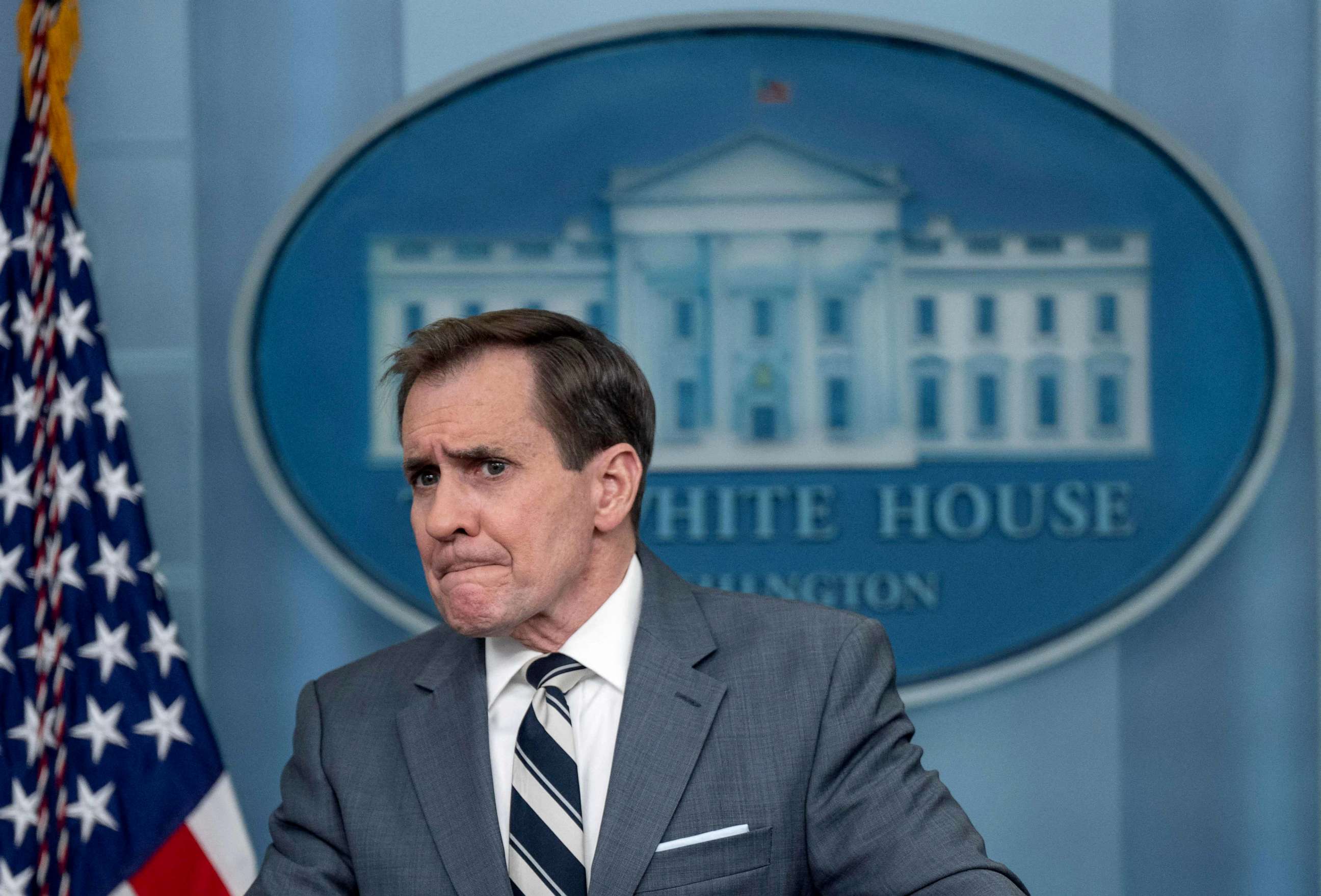'We don't know' what apparently poisoned Iranian schoolgirls, White House says
Hundreds of girls appear to have been overcome by noxious fumes.
The White House on Thursday said the Biden administration does not know what is causing the apparent poisoning of schoolgirls in Iran and called for the Iranian government to conduct a thorough and transparent investigation.
"It's deeply concerning news coming out of Iran. These -- what, what could be the poisoning of young girls that are just going to school," National Security Council spokesperson John Kirby said. "Truth is, we don't know right now what caused those ailments. We see reports that the Iranian government are investigating it, that's the right course of action.
"We want those investigations to be thorough and complete, and we want them to be transparent. Little girls going to school should only have to worry about learning. They shouldn't have to worry about their own physical safety, but we just don't know enough right now," he added.

Kirby wouldn't say if the U.S. would consider sanctions in reaction to any intentional poisoning. He also wouldn't say if the U.S. would take the Iranian investigation at face value.
"Let's see what the results are here first, before we make some kind of snap-judgment," he said. "We need to know, the world needs to know, certainly the families of those little girls need to know."
Over the past three months, hundreds of young girls attending different schools in Iran appeared to have been overpowered by what are believed to be noxious fumes wafting into their classrooms, with some ending up weakened on hospital beds, state media and the Associated Press reported.
Officials in Iran's theocracy initially dismissed these incidents but now describe them as intentional attacks involving some 30 schools identified in local media reports, with some speculating they could be aimed at trying to close schools for girls in this country of over 80 million people, according to sate media.
On Sunday, Iran's state-run IRNA news agency filed multiple stories that included officials acknowledging the scope of the crisis.
"After several poisonings of students in Qom schools, it was found that some people wanted all schools, especially girls' schools, to be closed," IRNA quoted Younes Panahi, a deputy health minister, as saying.
A health ministry spokesman, Pedram Pakaieen, said the poisoning didn't come from a virus or a microbe, but neither elaborated.
Ali Reza Monadi, a national parliament member who sits on its education committee, described the poisonings as "intentional."
The "existence of the devil's will to prevent girls from education is a serious danger and it is considered a very bad news," he said, according to IRNA. "We have to try to find roots" of this.




